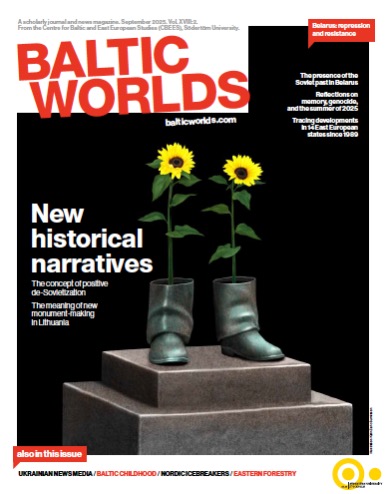“Khutin Pui, or What’s in Moscow? Election Campaign, a View from Below
The author has been following the protest against Putin through Facebook and a number of internet portals and claims that "even through the distance that any media technology always creates, one could not help feeling deeply affected by the joyous festivities during the protest events – tens of thousands strong manifestations, marches, flash mobs, and car rallies". "The idea that a political change must precede an economic discussion prevails. In the absence of a social program, the carnival feature of the protest movement becomes the uniting principle pulling together people who otherwise would have never ever acted together.".

 Issue 2025, 2:
Issue 2025, 2: